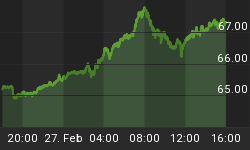U.S. Securities and Exchange Commission investigators have concluded their probe of possible financial fraud at Lehman Brothers Holdings Inc. and determined that they will probably not recommend any enforcement action against the firm or its former executives, according to an excerpt of an internal agency memo.
The agency has been grappling with the case for more than three years amid questions from lawmakers and investors as to whether Lehman misrepresented its financial health before filing the biggest bankruptcy in U.S. history in September 2008.

Lehman Brothers company sign at Christie's auction house
in London. Photographer: Ben Stansall/AFP/Getty Images
Under a heading reading "Activity in Last Four Weeks," the undated document reads, "The staff has concluded its investigation and determined that charges will likely not be recommended."
SEC officials didn't dispute the authenticity of the memo or its contents.
Pressure on the agency to punish any wrongdoing related to Lehman's collapse escalated after Anton Valukas, the court- appointed bankruptcy examiner, found the firm misled investors with "accounting gimmicks" that disguised the firm's leverage.
Senior officials have been reluctant to formally close the matter even though investigators found a lack of evidence of wrongdoing, according to people with direct knowledge of the matter. The officials have weighed issuing a public report on their findings that would stop short of an enforcement action while describing questionable conduct.
Under Analysis
SEC Chairman Mary Schapiro said in congressional testimony last month that the case was still "under investigation and analysis."
"Our staff has conducted an independent and extremely extensive investigation of all these issues," Schapiro said in the April 25 hearing before the House Financial Services Committee. "They have searched through millions of pages of documents. We have taken testimony of all the key people including members of Lehman senior management, outside accountants."
John Nester, an SEC spokesman, said the case remains under review.
"As the chairman said, it's still under review and no final decision has been made," Nester said in an e-mail.
In a 2010 report, Valukas said Lehman used transactions known as Repo 105s to hide billions of dollars in assets and artificially reduce the firm's leverage. In a typical repo agreement, one party temporarily transfers a security to another as collateral for short-term cash. A Repo 105 transaction requires extra collateral, making it a more costly form of borrowing. Those deals were accounted for by Lehman as "sales," as opposed to financing transactions, Valukas said.
Accounting Legal
After Valukas released his findings, the SEC sent letters to financial firms asking for information on their use of repos. While investigators found that Lehman's accounting of the transactions was legal, the people said, regulators have since changed accounting rules to keep other firms from doing the same.
According to the internal memo, SEC staff investigated whether Lehman and its officers misrepresented the firm's overall financial health, capital situation, liquidity and its commercial real estate portfolio.
In its final year, Lehman overvalued real-estate holdings, including a stake in U.S. apartment developer Archstone-Smith Trust, Valukas said. Lehman and Tishman Speyer Properties LP completed a joint acquisition of Archstone for $22 billion, including debt, in October 2007.
Lehman presented "unreasonable" valuations of its Archstone stake in the first three quarters of 2008, overvaluing the holding by as much as $450 million in the second quarter, Valukas said.
To contact the reporter on this story: Joshua Gallu in Washington at jgallu@bloomberg.net
To contact the editor responsible for this story: Maura Reynolds at mreynolds34@bloomberg.net















